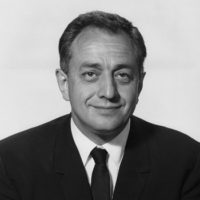
Robert A. Good
University of Minnesota
For pioneering contributions to the pathogenesis and treatment of severe immunodeficiency diseases, including the first successful allogeneic bone marrow transplants.
Dr. Good is a world-renowned pioneer in clinical investigation into the mechanisms of immunity. He has made uniquely important contributions to our understanding of the body's defenses against disease.
Dr. Good demonstrated in a systematic series of experiments that the human body has two immunological defense systems—one in the blood and tissue fluids, the other in certain white blood cells. He then showed the way in which the immune system develops and functions. The concomitant discovery of the key role of the thymus gland in immunobiology, and the application of this knowledge to clinical therapy, constitute a major landmark in medical research. His investigations led to the development of an essential theoretical framework within which logical correction of immune deficiency diseases can be achieved. Recently, Dr. Good transplanted bone marrow cells into immunologically deficient children, thus reconstituting both systems of immunologically active cells, and saving the children from heretofore uniformly fatal infection.
The ramifications of Dr. Good's contributions may go far beyond these immediate areas—into the pathogenesis of cancer, certain autoimmune diseases, some aspects of aging, and control of certain inherited diseases.
For his exciting and life-saving new procedures in cellular engineering which begin a new era in the control and treatment of disease, Dr. Good is given the 1970 Albert Lasker Clinical Medical Research Award.
